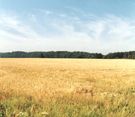Rural tourism and FMD
Analysis of rural tourism and its relation to foot-and-mouth disease


The memories of 2001?s foot and mouth outbreak have been catapulted to the forefront of people?s minds once again with last week?s re-appearance of the disease in Surrey. For the growing rural tourism industry, at the time the 2001 epidemic was a catastrophe, particularly because it received was no compensation (whilst the farmers more directly affected by the disease did receive some compensation for their losses).
During the epidemic huge areas of countryside were closed to the public and as a result the industry temporarily slumped, jeopardising hundreds of thousands of jobs. However, the coverage that the disaster received heightened awareness of the countryside and what it has to offer, and thus the industry surprisingly recovered very rapidly: it lost the economy £8.5 billion at the time, but is now bringing in around £14 billion per year.
The latest outbreak has again shocked the UK, and it remains to be seen whether it will have the same effect in the rural tourism industry as it did in 2001. If it spreads now, at the peak of the tourist season, there may be serious consequences as livelihoods will again be lost. However, if the epidemic is properly contained, perhaps this developing form of tourism can continue to thrive and grow.
Sign up for the Country Life Newsletter
Exquisite houses, the beauty of Nature, and how to get the most from your life, straight to your inbox.
-
 A well-connected rural playground with 23 acres on the edge of the South Downs National Park
A well-connected rural playground with 23 acres on the edge of the South Downs National ParkOld House Farm is an impressive family home with a wealth of amenities that would inspire any rural passion.
By Arabella Youens Published
-
 The UK gets its first ‘European stork village’ — and it's in West Sussex
The UK gets its first ‘European stork village’ — and it's in West SussexAlthough the mortality rate among white storks can be up to 90%, the future looks rosy for breeding pairs in southern England.
By Rosie Paterson Published
